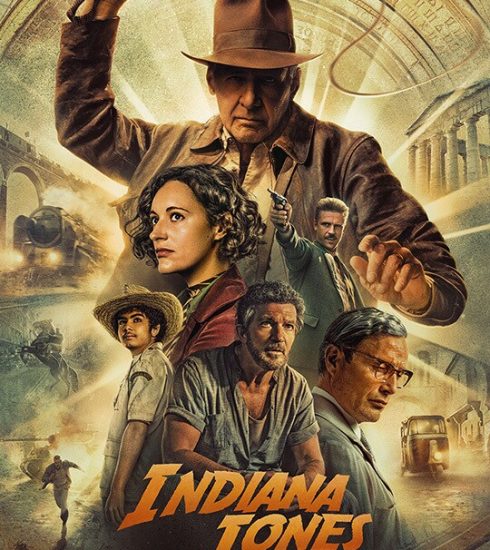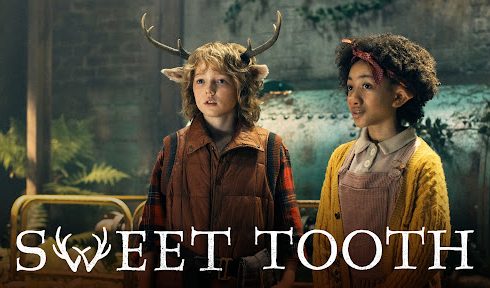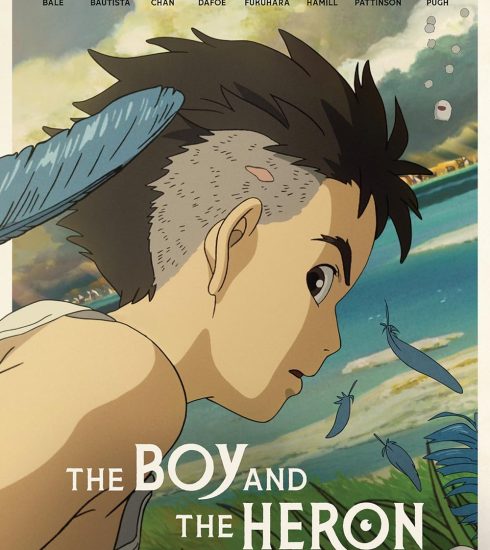Film Review: Damsel
A medieval word with a highly specific (but often misused) meaning, “damsel” describes a young, unmarried lady-in-waiting. It’s also the broad title given many a helpless heroine in Hollywood movies — the proverbial “damsel in distress,” trussed to the train tracks or otherwise waiting to be saved. Elodie is neither of those in Netflix’s pleasantly disruptive fantasy story, which places Enola Holmes star Millie Bobby Brown squarely in control of her fate.
A revisionist fairy tale in which Elodie is hastily married off and served up as dragon chow to satisfy a generations-old curse, Damsel treats Elodie as an action hero for our less gender-rigid times. The loud-and-clear message, achieved by eliminating “distress” from the title is (though it’s still an essential part of the formula): Passive damsels be damned! Here’s a woman who can fend for herself!
The eldest daughter of one Lord Bayford (Ray Winstone), kindly patriarch of a cash-strapped land, Elodie first appears with her hair and makeup neatly in place. She’s ready to pose for a royal portrait if she cared about such things (she’s more inclined to bow hunting and horseback riding). By the end of the tale, she’s charred and scarred, her dress dirty and torn to shreds, having endured a Die Hard-level gauntlet of dangers. (Technically, Elodie survived much worse, as tough guy Bruce Willis didn’t have to contend with a fire-breathing reptile. Like John Rambo, she can sew her own wounds.)
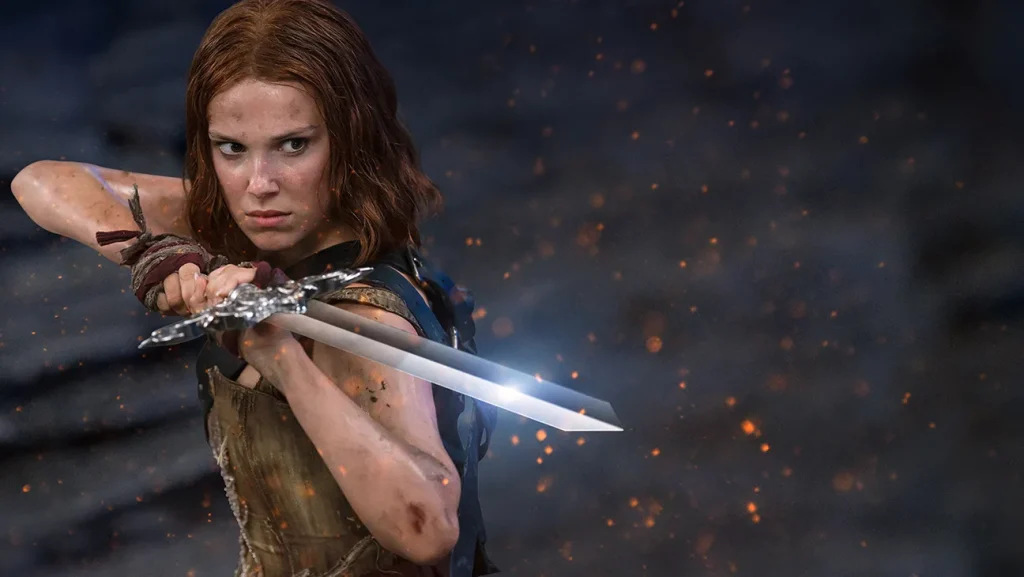
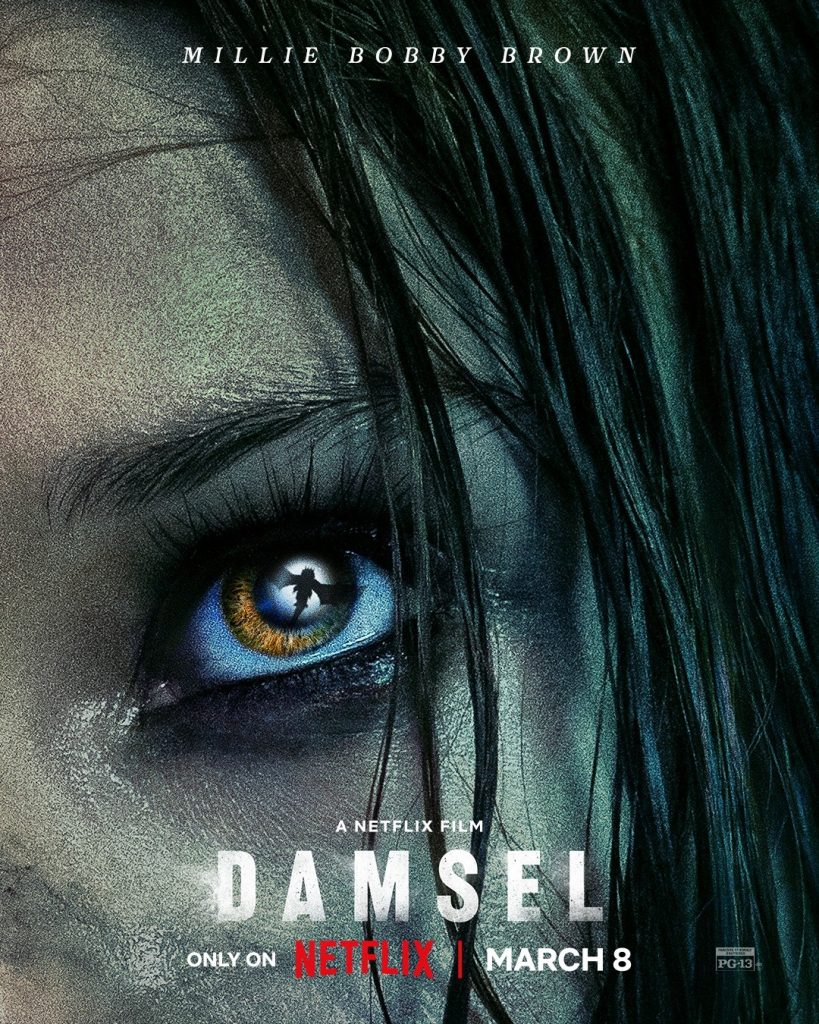
Elodie isn’t so much a damsel as she is a maiden, and she’s hardly the first who can get by without being rescued by a man. Rather, she’s the latest — and arguably the most resourceful — in a cycle that began with Disney’s Frozen a few years back. Now, after Hulu’s The Princess and Netflix’s own Nimona, helmer Juan Carlos Fresnadillo’s Damsel demonstrates how a genre that young people have enjoyed for a century needn’t be exclusively centred on boys.
In Dan Mazeau’s script, even the antagonists are women: Robin Wright, whose dastardly Queen Isabelle subverts the precious Buttercup she played in The Princess Bride, and Shohreh Aghdashloo, whose smoky voice seems an ideal fit for the fire-breathing dragon. There’s another obvious advantage to giving this fearsome CG creature the power of speech. Doing so explains how the dragon established the pact with a long-ago king (Matt Slack) who has called for so many royal sacrifices. But it also means that clever Elodie can reason with the beast. One doesn’t necessarily need brute strength to slay — or sway — a dragon.

In its idyllic opening stretch, the movie serves up the usual kind of romantic wish fulfilment. Sure, this is an arranged marriage, but the prince (Nick Robinson) is charming enough, and the wedding dress looks just dreamy. Still, something is clearly off in the kingdom of Aurea, and just before the wedding, Elodie’s stepmother (Angela Bassett) starts to worry … with good reason. The night of the ceremony, Elodie is carried up the mountain behind the castle and tossed down a large dark chasm.
At the bottom, she finds abandoned shoes and broken tiaras — evidence of her actual fate. How many brides have been offered to the dragon through the ages? In one of the movie’s effective scenes, Elodie finds a spot the dragon can’t reach, and there she discovers a wall where a dozen or so previous princesses wrote their names. They also left a map, sharing what they’ve learned with future victims. It’s an inspired show of solidarity in this umpteenth update on the Bluebeard folktale, which Fresnadillo makes literal by having the camera pan around the cave to reveal the wives who came before.
So many Netflix offerings look barely polished enough for the small screen. But every so often, one arrives with an all-star cast, lavish production values and the kind of creative oversight (by veteran producers who came up through the studio system) committed to making movies, as opposed to “content.” Damsel belongs to that old-fashioned tradition, even if its message feels totally contemporary. For his part, Fresnadillo immerses audiences in Elodie’s predicament through a balance of practical and digital effects, including huge jets of fire that singe at her heels but never quite catch up.
What matters most is whether we believe Brown in the role, and the Stranger Things star has no trouble embodying the kind of quick-thinking independent mind it takes to survive such an adventure. The movie doesn’t reveal too much of her personality before that first twist, though Elodie is shown drawing mazes in her spare time — a skill that comes in handy when trying to navigate the cavernous depths. Her only tools are a brass dagger stitched into her bodice and a bejewelled orb that serves as a lamp. If MacGyver could make do with that, so can she.
In classic tales, damsels spend their time learning to be ladies. Elodie bypasses all of that, using her intelligence to uncover the secret explanation of these horrific sacrifices, which could be read as centuries of what-they-don’t-tell-you patriarchal control. Deliciously improper at times, Damsel adheres to codes that can feel a bit calculated, less organic than crafted in response to a newly progressive corporate agenda (the signs are there at all levels, from inclusive casting to occasionally self-righteous dialogue). However, role models like Elodie remain all too rare, and if the movie changes the way young women say the word “damsel” going forward — no longer daintily, but with a growl — then it’s moved the needle.
6.8/10
Boluwatife Adesina is a media writer and the helmer of the Downtown Review page. He’s probably in a cinema near you.




